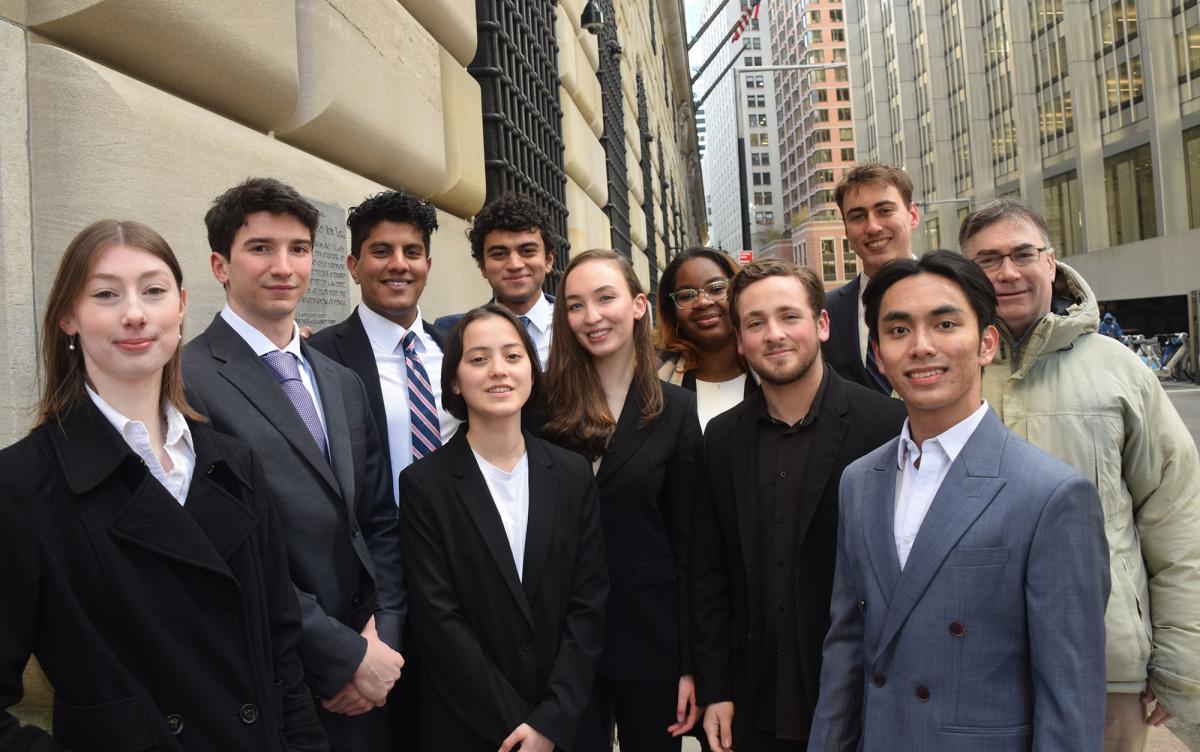
Why Does Gen Z Love Alt-Rock From The ’90s? Blame Our Parents, Sort Of
A study by Pace University found that rock is the second-most listened-to genre among young people today, The Toronto Observe reports.
What Trends Or Shifts Have You Observed In The Distribution Of Successful Entrepreneurial Ventures Across The Country?
Lubin Professor Bruce Bachenheimer offers expert advice to Money Geek on the best metro areas for new entrepreneurs and startups.

Barron Trump And Why People Are Obsessed With Him
Dyson Professor Melvin Williams shares insights with USA Today on the public’s fascination with Barron Trump.
Quality Education, Opportunities Pull Indian Students To US Universities: President of Pace University
President Krislov speaks with Press Trust of India regarding the factors drawing Indian students to U.S. universities, including quality education, career opportunities, and a supportive community.
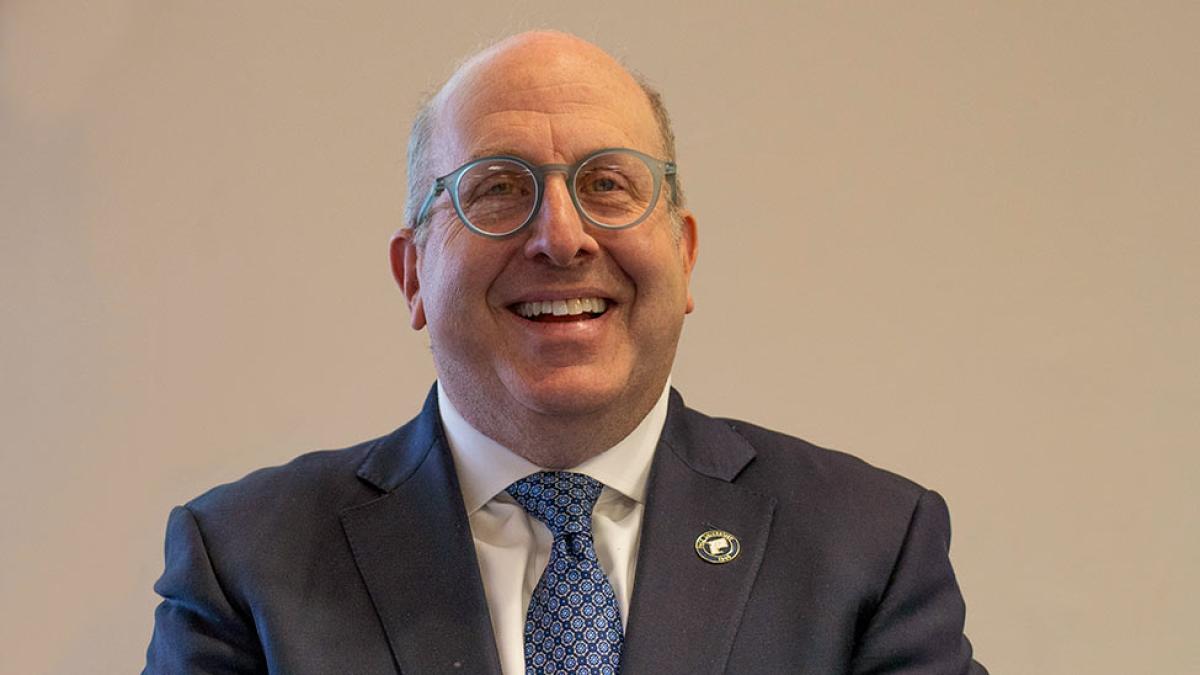
Mount Vernon STEAM Academy and Pace University Host STEM Day for Students
News 12 reports Mount Vernon STEAM Academy and Seidenberg collaborate on STEM Day for high school students.
Mayor Adams Faces Federal Charges As Trump Era Looms
Professor Bennett Gershman spoke to FOX 5 NY about the potential impact of a new administration on Mayor Adams’ pending legal case.
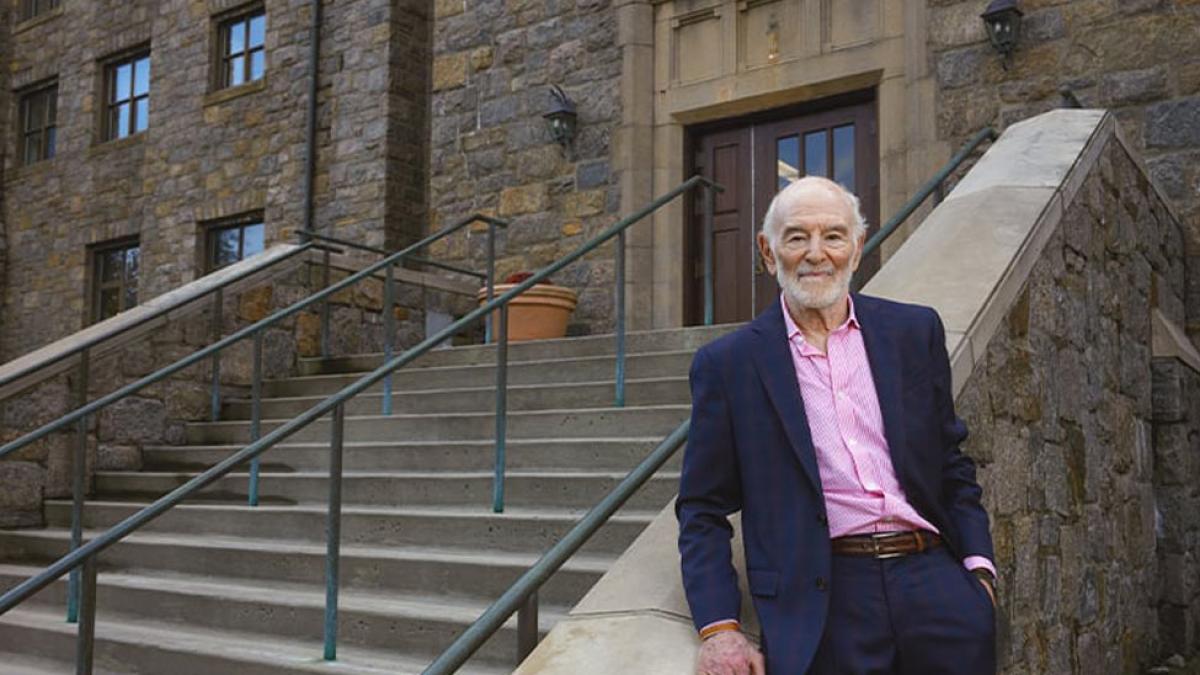
Physician Donald Moore ’76 Appointed to SUNY Downstate Community Advisory Board by Governor Hochul
Donald Moore ’76, Biology, Pre-med, a former attending physician at New York-Presbyterian Brooklyn Methodist Hospital, has been appointed by Governor Kathy Hochul to serve on SUNY Downstate’s community advisory board, along with seven other individuals.
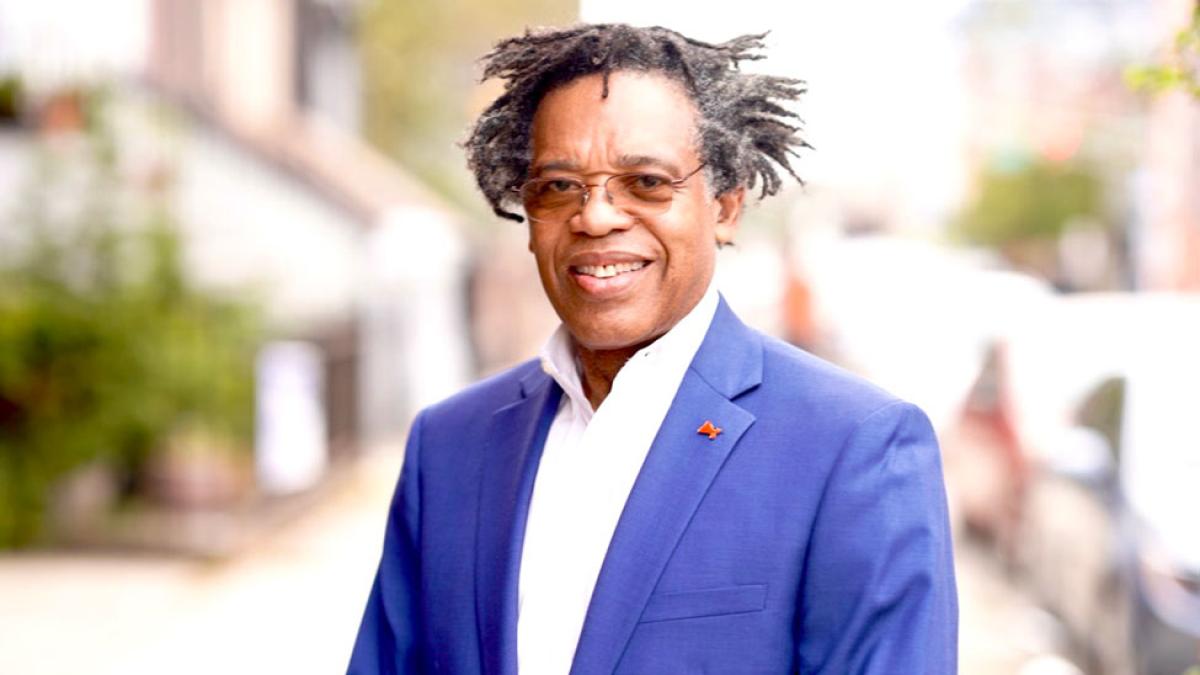
Donald Moore ’76, Biology, Pre-med, a former attending physician at New York-Presbyterian Brooklyn Methodist Hospital, has been appointed by Governor Kathy Hochul to serve on SUNY Downstate’s community advisory board, along with seven other individuals.
The board is part of an historic investment by Governor Hochul and the state legislature of $300 million in capital funding and $100 million in operating funding for the modernization and revitalization of SUNY Downstate, and is tasked with making recommendations to develop a “reasonable, scalable, and fiscally responsible plan for the financial health, viability, and sustainability of SUNY Downstate Hospital and SUNY Downstate Health Sciences University.”
Moore, an award-winning, Brooklyn-based physician who previously ran an independent primary care practice, has advocated for the best care for his patients and improvements in healthcare public policy. He is a member of the Dyson College Advisory Board at Pace University and has been actively engaged with his alma mater, including participation in the Dyson Dialogues and as an adjunct professor of biology.
More from Pace
ESS Prof Discusses Recent New York Wildfires and the New Normal of Extreme Weather Conditions
Associate Professor of Environmental Studies and Science Matthew Aiello-Lammens, PhD, was quoted in a LoHud article on extreme weather conditions, and specifically, the recent wildfires in New York State, and whether these are expected to be annual occurrences or represent a rare coming together of atmospheric conditions.
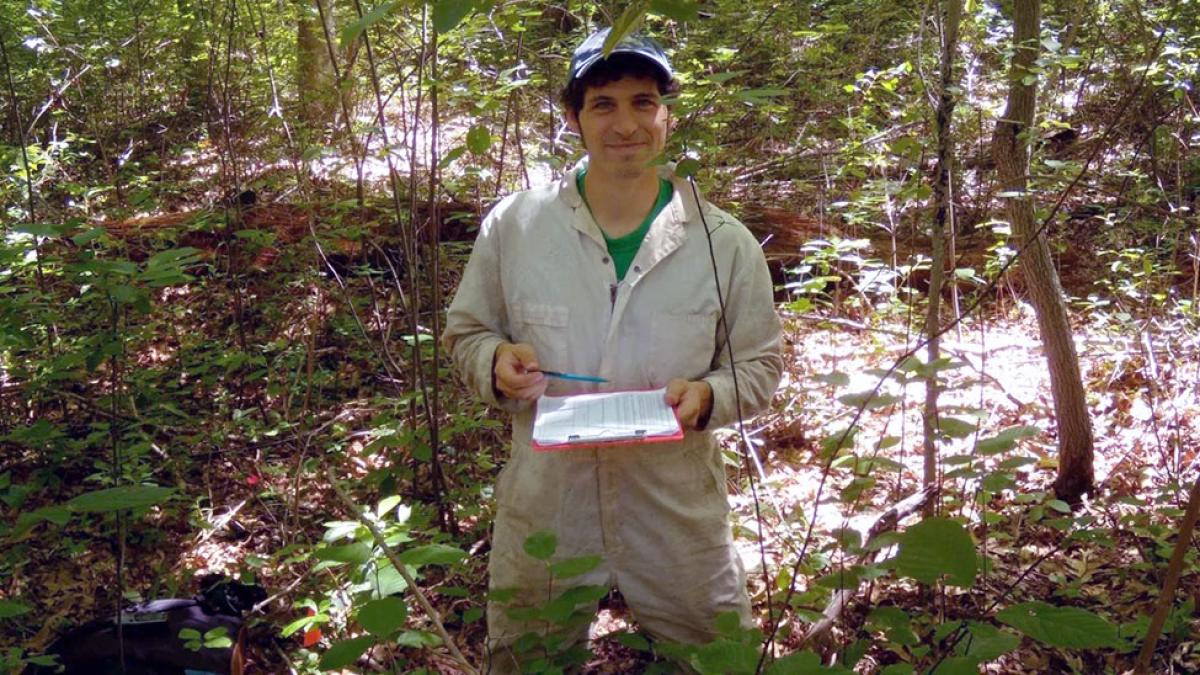
Associate Professor of Environmental Studies and Science Matthew Aiello-Lammens, PhD, was quoted in a LoHud article on extreme weather conditions, and specifically, the recent wildfires in New York State, and whether these are expected to be annual occurrences or represent a rare coming together of atmospheric conditions.
Aiello-Lammens said, “The new normal isn’t necessarily droughts or floods. The new normal is really the unpredictability of extreme events. It’s hard to know whether you’re going to get a drought year versus a flood year. But with the way climate is changing, the thing that we are confident about is that the extremes are becoming more frequent. What we’re not confident about necessarily yet is how to predict these extremes.”
The article also addressed whether conditions in New York forests are similar to or different than those out West, an area of the country that is quite familiar with wildfires, with Aiello-Lammens adding that they don’t different dramatically.
“They’re all fire prone ecosystems,” he said. “Here, there are plenty of accelerants–scrub oak and pitch pine–that can spread fire quickly and they’re surrounded by dense forest of hardwood trees. It just happens to be that we see a fair amount of precipitation in the Northeast. So, when you have these periods of dry spells, you’re bound to get these fires. Warm, dry conditions are good for drying out the leaf material that’s dry and dead. And they’re good for moving fire once it gets going."
More from Pace
Pace Fed Reserve Challenge Team Wins Regional Competition and Ranks Top Five in Nationals
The Pace University Federal Reserve Challenge team won the New York Regional College Federal Reserve Challenge competition, and ranked in the top five nationally, competing in the latter with institutions including Harvard University, Princeton University, the University of Miami, the University of Virginia, and the University of Michigan. They also received honorable mention as finalists in the competition.
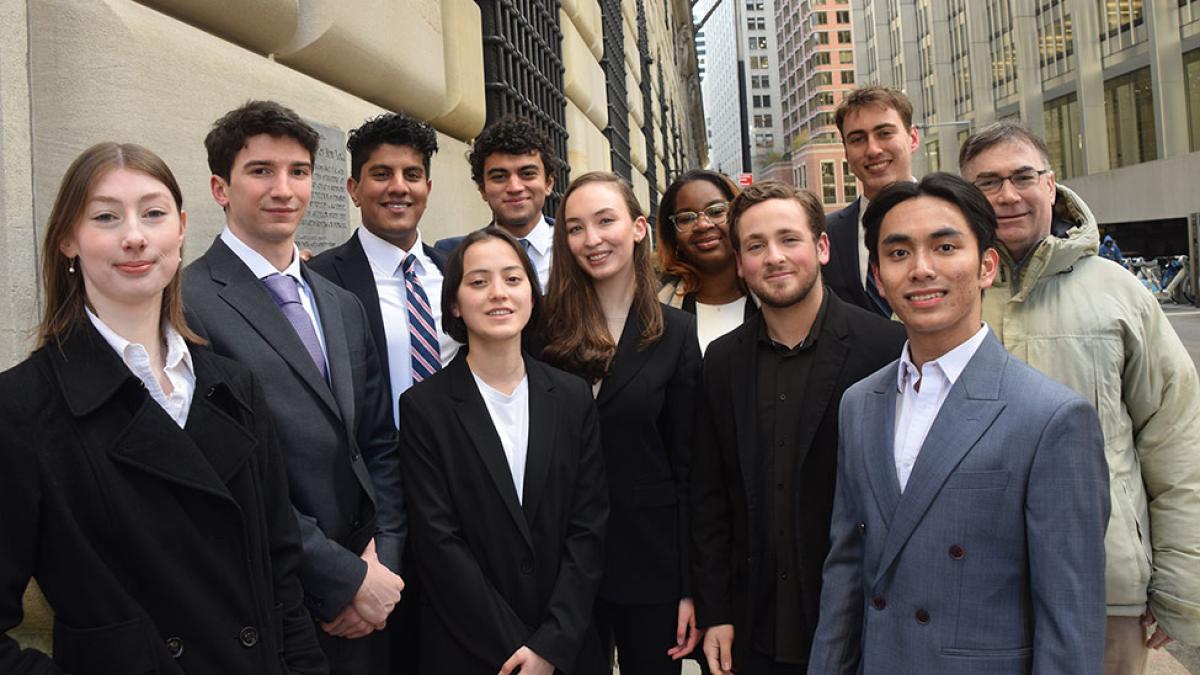
The Pace University Federal Reserve Challenge team won the New York Regional College Federal Reserve Challenge competition, and ranked in the top five nationally, competing in the latter with institutions including Harvard University, Princeton University, the University of Miami, the University of Virginia, and the University of Michigan. They also received honorable mention as finalists in the competition.

Team Co-Captains Liam Chentoufi ‘25, Economics, and Suraj Sharma ’25 ’26, Business Economics/MS Applied Quantitative Economic Analysis and Policy, led a team of undergraduate and accelerated combined degree students, including Justin Boudreau ‘25, Computer Science (Seidenberg), Economics, Brooklyn Bynum ‘26, Business Economics/MS Applied Quantitative Economic Analysis and Policy, Gunnar Freeman ’26, Computational Economics, Shaniah James ’26, Economics/MS Applied Quantitative Economic Analysis and Policy, Grace McGrath ‘26, Economics/MS Applied Quantitative Economic Analysis and Policy, Kristina Nasteva ’26, Business Economics, Harvey Nguyen ’26, Economics/MS Applied Quantitative Economic Analysis and Policy, Giancarlo Raspanti ’26, Business Economics/MS Applied Quantitative Economic Analysis and Policy, and Viktoriia Yevtushenko ‘25, Business Economics.
This bond among the Fed team alumni and the current team members, as well as the dedication of our entire department to the experiential learning and incredible work ethic of the team members, is what makes the Pace Fed team exceptional.
The Fed Reserve Challenge is a national competition among US colleges and universities in which teams analyze current economic conditions and propose a monetary policy to Fed officials. This year, 119 schools participated in the competition, the most ever.
The team was coached by Professor Gregory Colman, PhD, as well as Clinical Associate Professor Mark Weinstock, CBE. “It’s a great achievement and a tribute to the hard work that the students put in and I could not be prouder of them,” said Colman. Weinstock, who helped the team prepare for the Q&A portion of the competition, emphasized that “Our teams always excelled in this part of the competition and exhibited an incredible range of knowledge of monetary policy and US economy.”
The College Federal Reserve Challenge is a prime example of experiential learning at Pace, and many alumni, who were members of the team while students, have received both internships and gainful employment due to their experience at the award-winning competition. They, in turn, have been giving back, returning to Pace to help train younger generations.
Professor Anna Shostya, PhD, chair of the Economics department, said, “This bond among the Fed team alumni and the current team members, as well as the dedication of our entire department to the experiential learning and incredible work ethic of the team members, is what makes the Pace Fed team exceptional.”
In recognition of Pace University‘s consistent performance and success in the College Federal Reserve Challenge, President of the New York Reserve Bank John Williams has accepted an invitation from the Fed team captains to speak at the Pace Economics Society and Women in Economics student organizations (which also co-hosted an event this past October that brought prominent labor economist Daniel Hamermesh to the New York City campus) in February 2025.
Future of Privacy: Pace Event Explores the Intersection Between Tech and Law
Pace University’s Seidenberg School recently organized an event which hosted Emilie Nasseh, a prominent New York City-based lawyer specializing in privacy law and compliance, as a guest speaker.
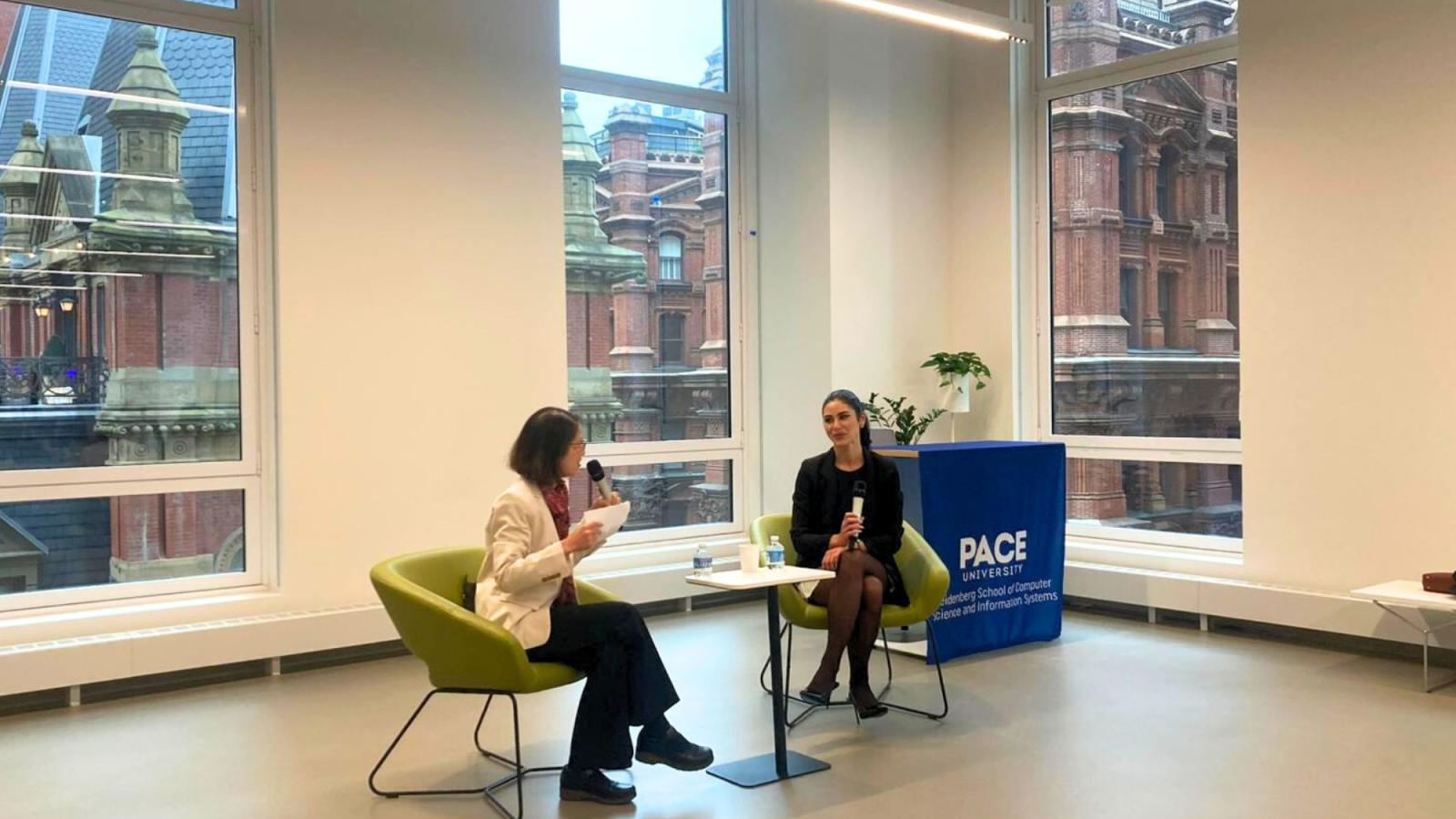
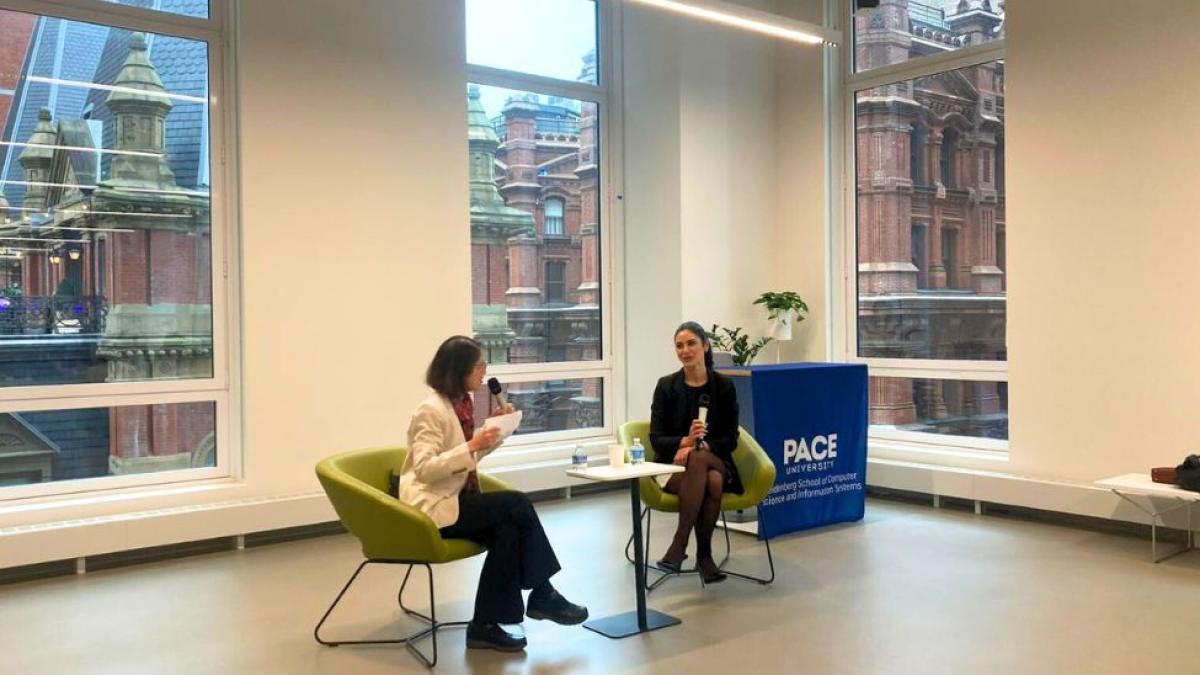
Pace University’s Seidenberg School of Computer Science and Information Systems recently organized an event which hosted Emilie Nasseh, a prominent New York City-based lawyer specializing in privacy law and compliance, as a guest speaker.
The event and conversation, held in Seidenberg’s Design Factory space, were moderated by Seidenberg’s Interim Dean, Dr. Li-Chiou Chen, and then moved into an interactive session with students. With her extensive experience in the technology, finance, and retail sectors, Emilie has collaborated with corporations in both the United States and France to enhance their privacy and cybersecurity programs, and has worked with companies like Meta, Capital One, Yum Brands, Kimberly-Clark, Ipsen, and Proskauer. Emilie’s expertise includes privacy regulations, cybersecurity, and the evolving field of AI compliance, while she also engages in thought leadership through her blog, Legally Brunette.
The event was yet another example of Seidenberg’s commitment to connecting Pace students’ classroom education to real world experience, as students had an opportunity to explore how their technical skills could align with legal careers. Emilie’s insights illuminated the various interesting opportunities at the juncture of law and technology, and her discussions with Dean Chen and the students ranged from tech roles in legal contexts to artificial intelligence, and to the convergence of cybersecurity and legal frameworks—a particularly timely topic as Seidenberg recently launched its new BS in Cybersecurity program. The program, designed to address growing industry demands, equips students with hands-on learning and interdisciplinary knowledge.
As the Seidenberg School continues to lead in preparing students for cutting-edge careers by facilitating events where they gain direct insights from industry leaders, Emilie Nasseh’s expertise and engaging discussions provided invaluable perspectives on the intersection of law and tech, inspiring students to envision a variety of roles their roles for their future.